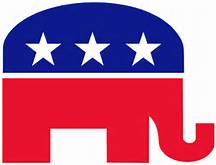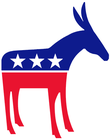I had a wild thought: I’d like to adopt for myself a new President! There are quite a few to choose from now: Justin Trudeau in Canada; Emmanuel Macron in France; certainly Angela Merkel in Germany; Gudni Johannesson of Iceland; or Nicola Sturgeon of Scotland. There are probably others we can think of.
I am sure that none of these leaders is perfect, or uniformly popular in their own countries. I might also disagree with some of the policies held by them or the parties they represent. But from what little we know about these leaders, they seem vastly superior to our own, highly flawed president.
Musing about other nations’ commendable leaders led me to wonder how we in the US arrived at this point, from twice electing Barack Obama to choosing Trump.  We all know the basics: Trump rolled over more than a dozen Republican primary opponents to win the Republican nomination; Hillary Clinton was on her way to winning the presidency but was tripped up by internal and external challenges; and Trump won because of our unique Electoral College system, not because of simple vote-counting – Clinton would have won if we, like most other advanced democracies, elected our president by simple majority.
We all know the basics: Trump rolled over more than a dozen Republican primary opponents to win the Republican nomination; Hillary Clinton was on her way to winning the presidency but was tripped up by internal and external challenges; and Trump won because of our unique Electoral College system, not because of simple vote-counting – Clinton would have won if we, like most other advanced democracies, elected our president by simple majority.
There are other important considerations about why we are where we are, however, that should be acknowledged. Other nations are facing the same challenges we are: the lingering effects of the Great Recession; the problem of globalization that has left certain segments of our populations behind economically; the influx of large numbers of immigrants from countries experiencing civil war, violence and political upheaval; the threat of terrorism; the known interference in elections by Russians and perhaps others; and the rise of far-right groups that espouse isolationism and extreme nationalism. Unlike us, though, these nations have chosen leaders over the past few years, amidst all these challenges, who can be truly admired and respected. What is it about these countries and their systems that differs from ours and that influences our respective voters in such different ways?
With this question, I do not mean to suggest that Americans who voted for Donald Trump are somehow inferior to those who voted for Clinton; many Trump voters had legitimate, thoughtful reasons for casting their ballot the way they did. What I would like to note are some of the forces that differ between our societies that lead to such divergent results.
- Generally speaking, voter participation in other nations is significantly higher than ours, and has been for decades. This means that more citizens are actively involved in the political process in other countries than in the US. This means, in turn, that those citizens elsewhere have a higher level of trust in politicians and government than we do; that they seem to have more time at their disposal to participate in the political process; that they have more access to facts and evidence to educate themselves about the issues. Voting in other countries, as we have mentioned earlier, is managed to maximize participation, such as weekend voting. And, finally, despite 50 years of the civil rights movement, we have woefully high levels of voter suppression: many people who might want to vote are unable to.
- As we noted earlier, other nations do not have winner-take-all systems of governance. When coalition governments are in place and many parties are viable, many more voices can be heard in the halls of government, which means that many more citizens can feel that their opinions are not only heard but count. We in the US have a long way to go to regain any sense of that level of involvement and engagement that we may have had in the past, given our highly partisan system.


- Our election seasons are incredibly lengthy compared to those of most of our peer nations. Do we Americans get battle-weary and thus disengaged from the process when our campaigns go on endlessly for months?
- In the US, as most of us know, running for office is out of the reach financially for most Americans: one has to be wealthy to seek office because of the vast expense of advertising, staffing, travel and the like. There is some federal funding for candidates running for president, but other nations forbid certain types of funding for candidates that we allow. Hungary, for instance, has followed France’s lead to allocate “free and equal access to both public and private media networks to all eligible candidates.” (And of course the shorter the election cycle, the less expensive it is.)
So, alas, as much as I might like, I am not able to adopt a different leader to run the United States! All I can do is try my best to work within our own system to change it for the common good and encourage all of us to look to our peer nations for suggestions, ideas, and good practices and policies that we can “beg, borrow or steal.” We can also count our blessings that there are high-quality leaders in our sister nations; I have little hope that their qualities will rub off on Donald Trump, but I do remain hopeful that their combined leadership on the world stage, and the checks-and-balances in our own realm, can mediate most of the missteps our president seems to take so consistently.

